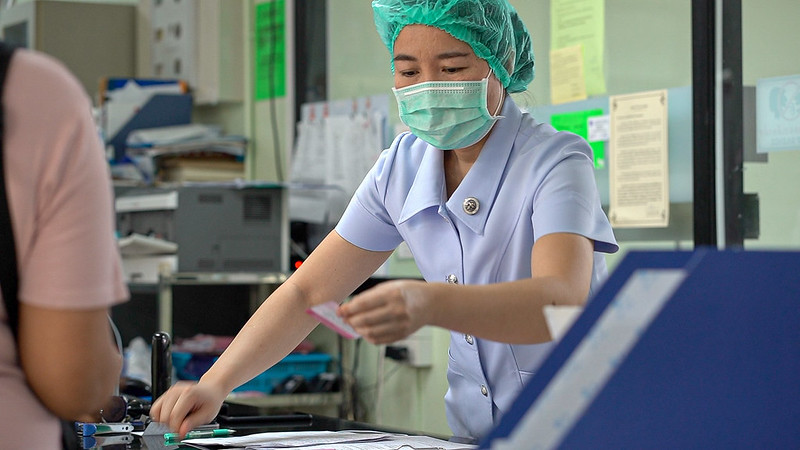Thailand's state-run hospitals hard hit by nurse shortages
About 10,000 new nurses graduate annually but 7,000 leave state-run establishments for better pay at facilities serving foreign patients or located abroad. Low wages and heavy workloads (up to 80 hours per week) are blamed.
Bangkok (AsiaNews) – Thailand, a country of 67 million inhabitants, has an elderly population of more than 12 million people, and growing, with medical needs that require highly trained staff.
This is straining the capacity to meet the needs of this age group and is negatively impacting health services that provide increasingly sophisticated medical services.
What is more, the shortage in qualified nursing staff is not only affecting the country’s capacity to meet local needs, but also its medical tourism sector, which has seen major growth in recent years.
Increasingly nurses are leaving the public sector to work in healthcare facilities that offer better paid, especially abroad, where the demand is high.
Although 10,000 new nurses graduate annually, up to 7,000 quit state-run hospitals each year due to excessive workloads and poor pay. In fact, almost half (48.9 per cent) of all new nurses quit in their first year of work. And things are getting worse.
The number of registered nurses dropping to 184,400 in 2021, a number the authorities have to take this into account when planning health care policy, centred on more than 38,000 health-providing facilities, 35 per cent of which are state-run.
As a result of staff shortages, nurses’ weekly workload has increased. A nurse’s working hours used to be around 48 per week, but as more and more nurses quit state-run facilities, the hours began to rise, up to 60 and even 80 hours.
While individual expectations and attitudes play a role, wages are the key issue. The basic monthly pay is in the order of 26,000 baht (US$ 750). The main bone of contention is overtime both in terms of the number of hours and level of remuneration.
Nurses working for state-run hospitals are paid only between 650 and 800 baht (US$ 19 to US$ 23) per eight-hour shift; by contrast, hospitals under the Bangkok Metropolitan Administration (BMA) pay their nurses 1,200 baht for the same period.
Photo: Flickr / UN Women Asia & Pacific







.png)










